Chinese Inspired Chicken Wings.
 You can cook Chinese Inspired Chicken Wings using 15 ingredients and 3 steps. Here is how you achieve that.
You can cook Chinese Inspired Chicken Wings using 15 ingredients and 3 steps. Here is how you achieve that.
Ingredients of Chinese Inspired Chicken Wings
- It’s of Prep time 8 hours.
- It’s of Cook time 35 mints.
- It’s of Total time 8 hrs 35 mints.
- It’s 12 of skinned chicken wings.
- You need 1 1/2 tbsp of red chilli flakes.
- You need 1 tsp of paprika.
- It’s 1 tsp of black pepper.
- You need 1 tsp of red chilli power.
- You need 1 1/4 tsp of cumin powder.
- You need 1/2 tsp of sugar.
- It’s 1 tbsp of vinegar.
- Prepare 1 of egg white.
- You need 2 tbsp of cornflour.
- It’s 1 tbsp of flour.
- It’s of Oil for frying.
Chinese Inspired Chicken Wings instructions
- In a separate bowl add in the first 6 dry ingredients. Wash and pat dry the wings. Marinate the wings with the spice mix and keep refrigerated for 8 hours or more depending on your requirement..
- Take out the wings from the refrigerator and add the flour, cornflour, egg white, vinegar and mix well..
- Fry on a high flame until crispy and golden brown. Serve with your favourite sauces or enjoy as it is..

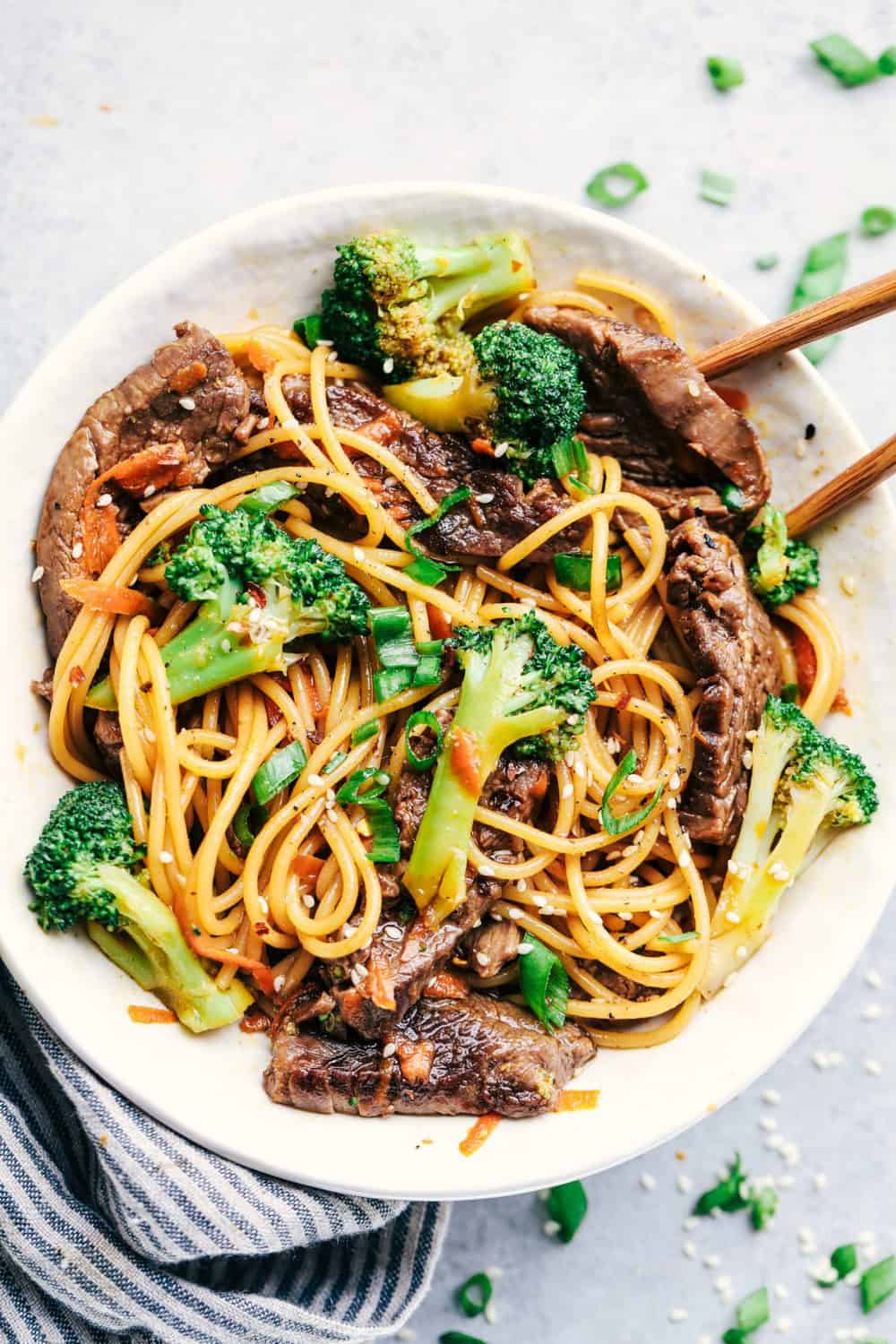
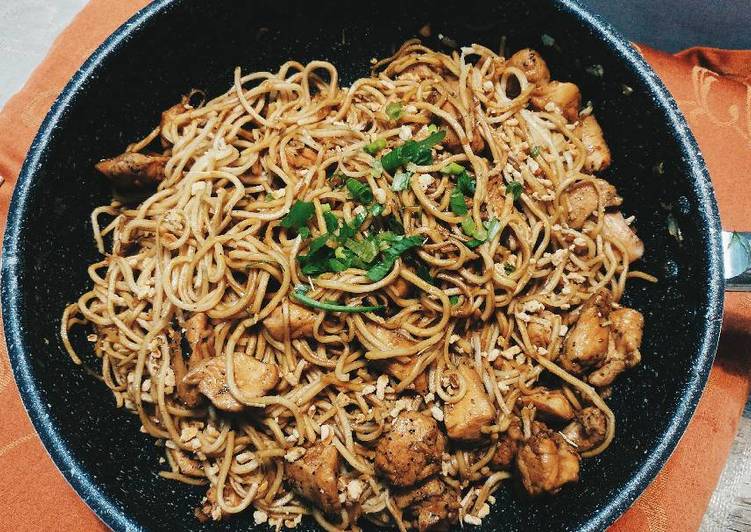 You can have Easy Garlic Beef Chinese Noodle using 7 ingredients and 6 steps. Here is how you achieve it.
You can have Easy Garlic Beef Chinese Noodle using 7 ingredients and 6 steps. Here is how you achieve it. 
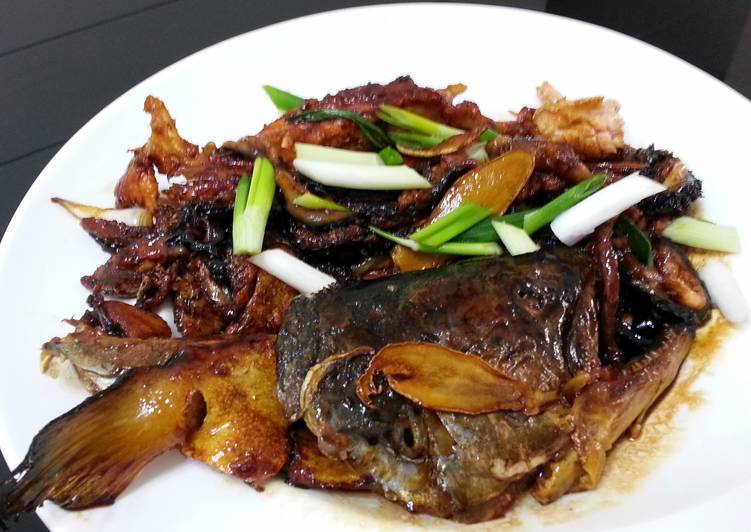 You can have Claypot Ginger and Spring Onion Salmon using 7 ingredients and 2 steps. Here is how you cook that.
You can have Claypot Ginger and Spring Onion Salmon using 7 ingredients and 2 steps. Here is how you cook that. 
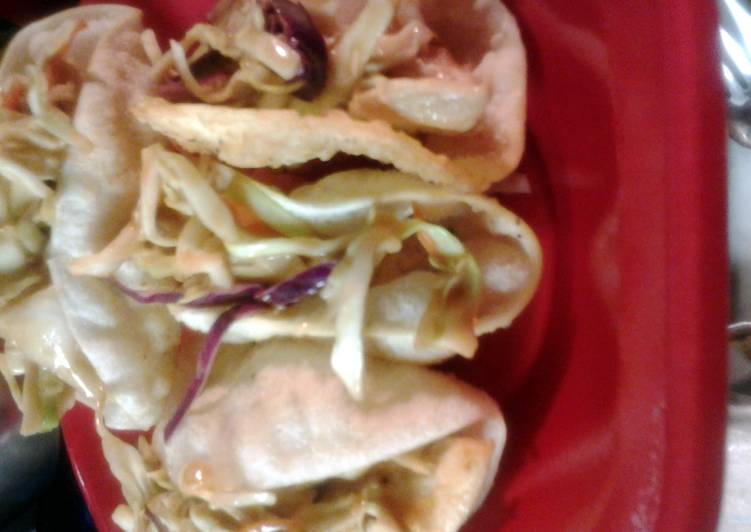 Make our Applebee's Wonton Tacos Recipe at home tonight. With our Secret Restaurant Recipe your Wonton Tacos will taste just like Applebee's. My wife and I love the chicken wonton tacos at applebees and this is the closest to it. You can cook copycat recipe for Applebees wonton chicken tacos using 14 ingredients and 2 steps. Here is how you cook that.
Make our Applebee's Wonton Tacos Recipe at home tonight. With our Secret Restaurant Recipe your Wonton Tacos will taste just like Applebee's. My wife and I love the chicken wonton tacos at applebees and this is the closest to it. You can cook copycat recipe for Applebees wonton chicken tacos using 14 ingredients and 2 steps. Here is how you cook that. 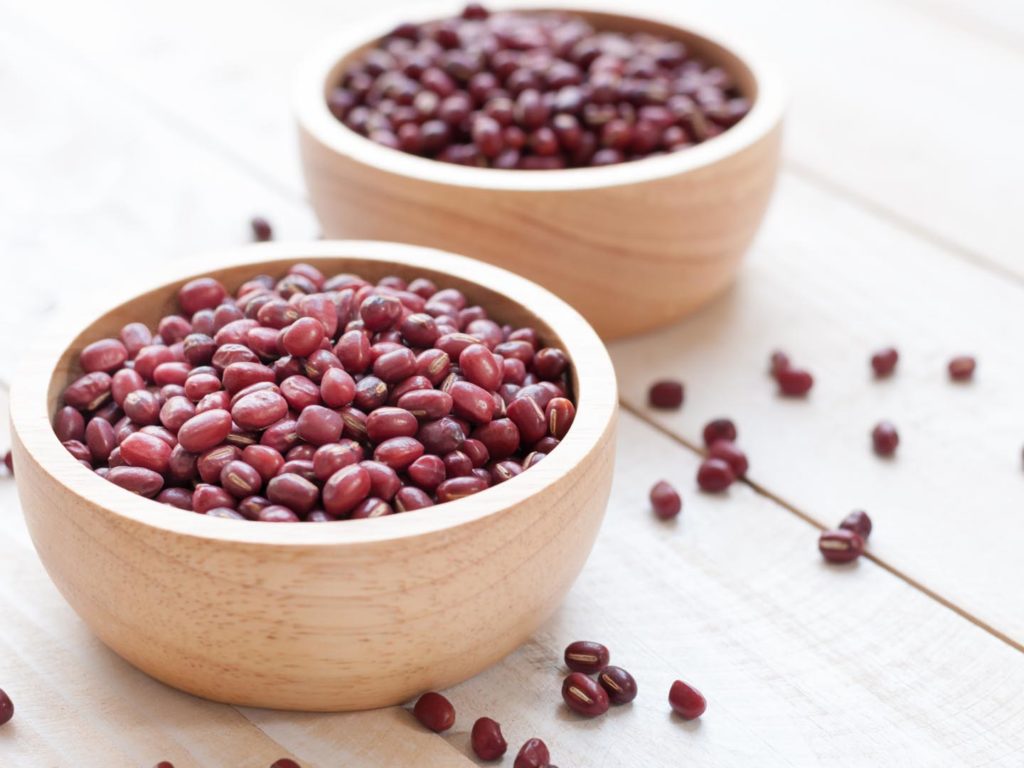
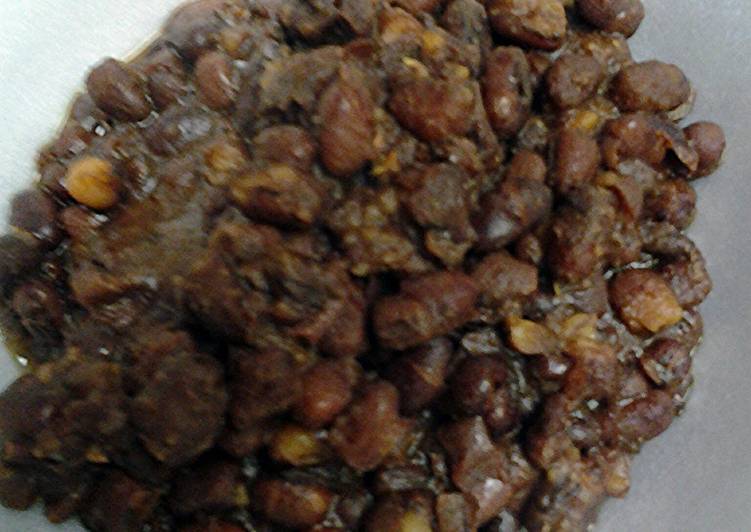 The red-colored beans were believed to have the effect of suppressing negative emotions and bad luck. A wide variety of red adzuki beans options are available to you, such as packaging, cultivation type, and style. Different recipes require different ingredients and upon the ingredients used depends on the success of a dish. You can have Chinese red beans (adzuki beans) using 9 ingredients and 3 steps. Here is how you cook it.
The red-colored beans were believed to have the effect of suppressing negative emotions and bad luck. A wide variety of red adzuki beans options are available to you, such as packaging, cultivation type, and style. Different recipes require different ingredients and upon the ingredients used depends on the success of a dish. You can have Chinese red beans (adzuki beans) using 9 ingredients and 3 steps. Here is how you cook it. 
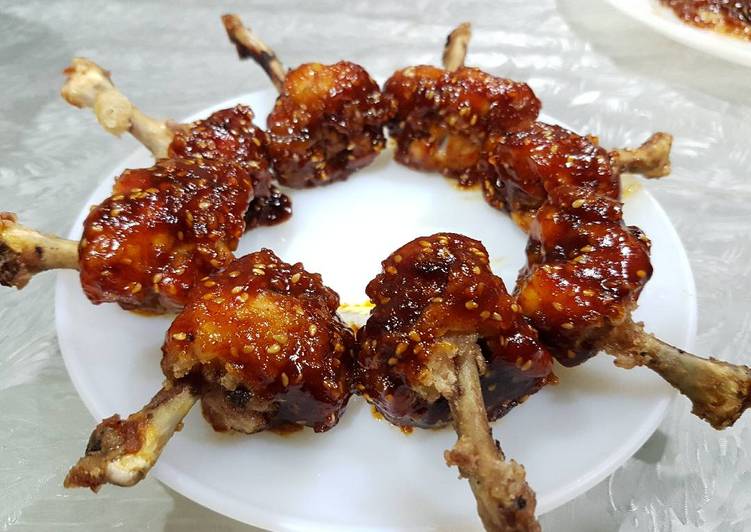 You can have Chinese Style Honey Lollipop Chicken using 15 ingredients and 4 steps. Here is how you cook it.
You can have Chinese Style Honey Lollipop Chicken using 15 ingredients and 4 steps. Here is how you cook it. 
 They also just happen to be the perfect size to pack into school lunchboxes. There is nothing more irritating than taking the time to cook dinner, only to have a child turn up their nose at the meal placed in front of. Mini Lasagna Cups – The easiest, simplest lasagna you will ever make, conveniently made into single-serving portions! You can have Sophie's easy lasagne cups using 19 ingredients and 15 steps. Here is how you cook that.
They also just happen to be the perfect size to pack into school lunchboxes. There is nothing more irritating than taking the time to cook dinner, only to have a child turn up their nose at the meal placed in front of. Mini Lasagna Cups – The easiest, simplest lasagna you will ever make, conveniently made into single-serving portions! You can have Sophie's easy lasagne cups using 19 ingredients and 15 steps. Here is how you cook that. 
 You can cook Egg Roll wrapped salmon salad using 6 ingredients and 9 steps. Here is how you cook it.
You can cook Egg Roll wrapped salmon salad using 6 ingredients and 9 steps. Here is how you cook it. 
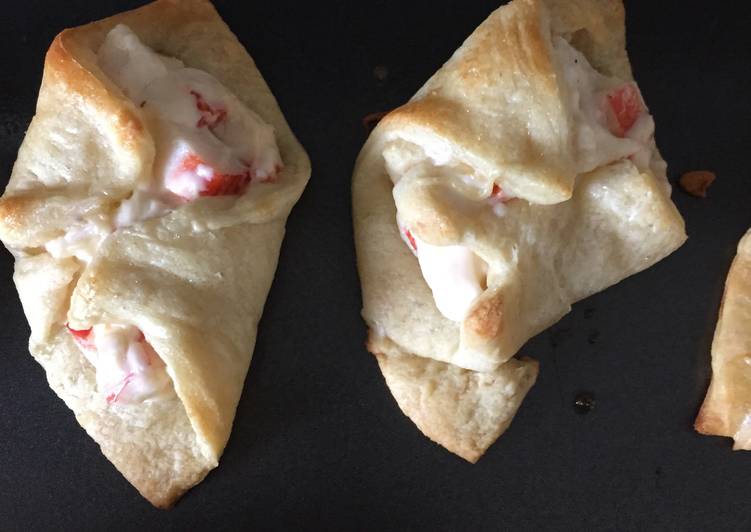 You can cook Crab-Filled Crescent Wontons using 6 ingredients and 9 steps. Here is how you achieve it.
You can cook Crab-Filled Crescent Wontons using 6 ingredients and 9 steps. Here is how you achieve it. 
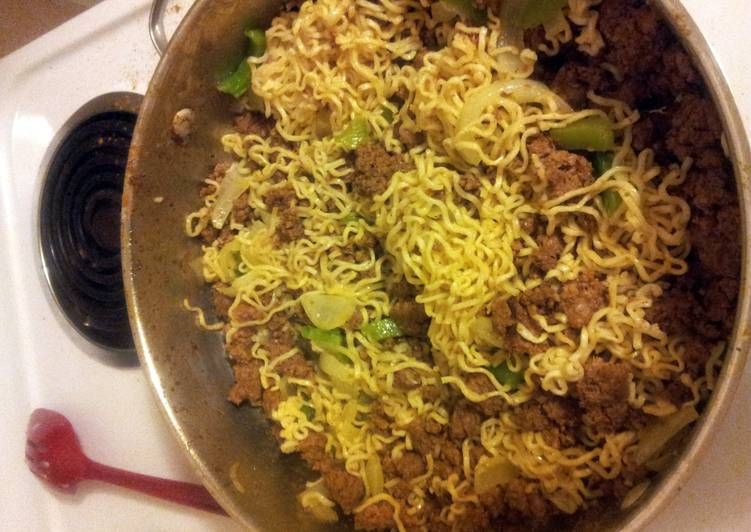 Also a guide to where the local Chinese eat and on culinary traditions in China. Want to know what traditional Chinese food really looks like? The Chinese eat many foods that are unfamiliar to North Americans. You can have Chinese food using 4 ingredients and 5 steps. Here is how you achieve it.
Also a guide to where the local Chinese eat and on culinary traditions in China. Want to know what traditional Chinese food really looks like? The Chinese eat many foods that are unfamiliar to North Americans. You can have Chinese food using 4 ingredients and 5 steps. Here is how you achieve it.